Input interpretation

1, 2-pentanediol
Chemical names and formulas
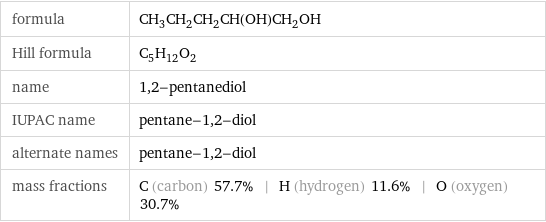
formula | CH_3CH_2CH_2CH(OH)CH_2OH Hill formula | C_5H_12O_2 name | 1, 2-pentanediol IUPAC name | pentane-1, 2-diol alternate names | pentane-1, 2-diol mass fractions | C (carbon) 57.7% | H (hydrogen) 11.6% | O (oxygen) 30.7%
Lewis structure
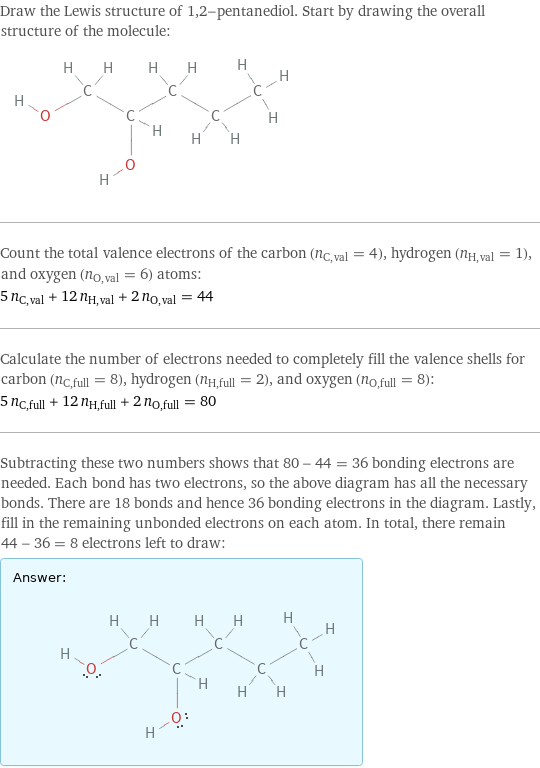
Draw the Lewis structure of 1, 2-pentanediol. Start by drawing the overall structure of the molecule: Count the total valence electrons of the carbon (n_C, val = 4), hydrogen (n_H, val = 1), and oxygen (n_O, val = 6) atoms: 5 n_C, val + 12 n_H, val + 2 n_O, val = 44 Calculate the number of electrons needed to completely fill the valence shells for carbon (n_C, full = 8), hydrogen (n_H, full = 2), and oxygen (n_O, full = 8): 5 n_C, full + 12 n_H, full + 2 n_O, full = 80 Subtracting these two numbers shows that 80 - 44 = 36 bonding electrons are needed. Each bond has two electrons, so the above diagram has all the necessary bonds. There are 18 bonds and hence 36 bonding electrons in the diagram. Lastly, fill in the remaining unbonded electrons on each atom. In total, there remain 44 - 36 = 8 electrons left to draw: Answer: | |
3D structure
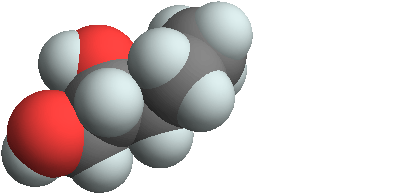
3D structure
Basic properties
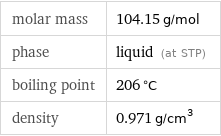
molar mass | 104.15 g/mol phase | liquid (at STP) boiling point | 206 °C density | 0.971 g/cm^3
Units

Liquid properties (at STP)

density | 0.971 g/cm^3 dynamic viscosity | 0.1184 Pa s (at 10.75 °C) refractive index | 1.439
Units

Chemical identifiers
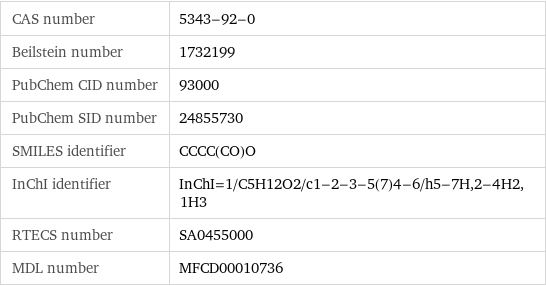
CAS number | 5343-92-0 Beilstein number | 1732199 PubChem CID number | 93000 PubChem SID number | 24855730 SMILES identifier | CCCC(CO)O InChI identifier | InChI=1/C5H12O2/c1-2-3-5(7)4-6/h5-7H, 2-4H2, 1H3 RTECS number | SA0455000 MDL number | MFCD00010736
Safety properties

flash point | 104.4 °C
Toxicity properties

RTECS classes | other